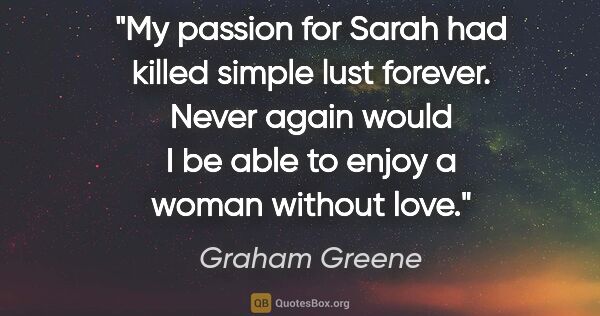Without Quotes (page 132)




Now Juan could not understand a word, Being no Grecian; but he had an ear, And her voice was the warble of a bird, ... So soft, so sweet, so delicately clear, That finer, simpler music ne'er was heard; The sort of sound we echo with a tear, Without knowing why - an overpowering tone, Whence Melody descends as from a throne.
George Byron

You never speak about yourself without loss. Your self-condemnation is always accredited, your self-praise discredited. There may be some people of my temperament, I who learn better by contrast than by example, and by flight than by pursuit. This was the sort of teaching that Cato the Elder had in view when he said that the wise have more to learn from the fools than the fools from the wise; and also that ancient lyre player who, Pausanias tells us, was accustomed to force his pupils to go...
Michel de Montaigne
From a translation by Stephen Mitchell Chapter 14Look, and it can't be seen. Listen, and it can't be heard. Reach, and it can't be grasped. Above, it isn't bright. Below, it isn't dark. Seamless, unnamable, it returns to the realm of nothing. Form that includes all forms, image without an image, subtle, beyond all conception. Approach it and there is no beginning; follow it and there is no end. You can't know it, but you can be it, at ease in your own life. Just realize where you come from:...
Lao Tzu
Fancy can hardly forbear to conjecture with what temper Milton surveyed the silent progress of his work, and marked his reputation stealing its way in a kind of subterraneous current through fear and silence. I cannot but conceive him calm and confident, little disappointed, not at all dejected, relying on his own great merit with steady consciousness, and waiting, without impatience, the vicissitudes of opinion, and the impartiality of a future generation.
Samuel Johnson
No justification of virtue will enable a man to be virtuous. Without the aid of trained emotions the intellect is powerless against the animal organism. I had sooner play cards against a man who was quite skeptical about ethics, but bred to believe that ‘a gentleman does not cheat’, than against an irreproachable moral philosopher who had been brought up among sharpers.
C. S. Lewis

